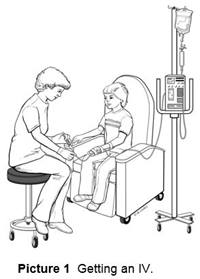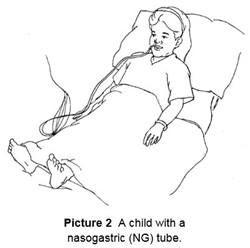Getting Ready for Surgery Center for Colorectal and Pelvic Reconstruction (CCPR)
![]()
Your child will be admitted to the hospital before the procedure to prepare his or her bowels for surgery. Continue your child’s current bowel regimen until admission. At admission, you can expect your child to have the following things happen:
- There will be changes to normal eating and drinking patterns.
- Vital signs will be checked.
- Blood will be drawn for lab tests.
- An intravenous (IV) line will be placed.
- Bowel prep will clear out stool
- Rectal irrigations can help clean out the intestine.
Eating and drinking
|
Day before admission |
Morning of admission starting at 5am |
At Admission |
Night of Admission |
|
Keep current diet |
Change to a FULL LIQUID DIET.(See below for types of foods allowed.) |
Change to a CLEAR LIQUID DIET.(See below for types of foods allowed.) |
Nothing to eat or drink after midnight unless directed by the medical team. |
- A FULL LIQUID DIET includes foods that are normally liquid or that turn into liquid when at room temperature. Examples of full liquids include breast milk, formula, milk, juice, yogurt, blended oatmeal, cream of wheat, pudding, ice cream, and sherbet. It also includes any food or drink listed under the CLEAR LIQUID DIET.
- A CLEAR LIQUID DIET includes foods that are liquid at room temperature that you can see through or read a newspaper through. Examples of clear liquids are Pedialyte®, clear broth, Gatorade® or Powerade®, clear fruit juice, ices, sorbet, Jell-O®, etc.

- Breast milk is NOT considered a clear liquid during your child’s bowel prep.Your child may have breast milk up until admission to the hospital, but will not be able to have it during the bowel prep.Your medical team will tell you when it is safe for your child to start taking breast milk again.
- Your child will be hydrated with fluid through an IV (see Getting an IV, below) during the bowel prep.
Vital signs
Your child will need to have his or her temperature, blood pressure, and heart rate checked every 4 hours. These checks make sure the child’s body is handling the bowel prep well. Vital signs will continue to be checked after surgery.
Lab draws
Your child will need to have blood drawn after being admitted. This blood is usually taken from a small prick to the finger. Blood will be drawn again once the bowel prep is over and may continue during your child’s hospital stay.
Getting an IV
Since there are restrictions on eating and drinking before and after surgery, we will keep your child hydrated with intravenous (IV) fluids. This means an IV will need to be placed when your child gets to the unit (Picture 1). An IV is a small tube (catheter) that is placed in a vein. It is usually put in the arm, hand, or foot. The IV will stay in until your child is discharged from the hospital.
Bowel Prep
Many parents report this is the hardest part of the hospital stay. Your child’s colon will need to be clear of stool for the procedure to reduce the risk of infection. To make sure the colon gets clean, bowel prep will need to be completed.

- A medicine called GoLYTELY® will be given to make the stool loose and bowel movements more frequent. Expect your child to need frequent diaper changes and trips to the toilet.
- The time needed for the bowel prep to be complete will depend on your child’s history. On average, expect the bowel prep to last 8 to 12 hours. Some patients may need a 2-day cleanout (this will be reflected on your itinerary).
- This medicine is given through a nasogastric (NG) tube. An NG tube (Picture 2) is put in through the nose and goes down into your child’s stomach. This tube is taped to the cheek to make sure it stays in place during the bowel cleanout. The solution is given through this tube over a pump throughout the day and evening of the bowel prep. This will continue to run until the medical team determines it is okay to stop.
- If your child has a Malone or cecostomy tube, he or she may be able to receive the cleanout through that tube.
Upon request, Child Life can be available for support during the NG placement.
Rectal Irrigations
Your child may need rectal irrigations during the bowel prep. These help to move stool through the colon.
- A rectal irrigation is done by putting a tube in your child’s rectum and flushing saline through the tube. This helps empty stool and gas from the intestine.
- Your child may need rectal irrigations every 1 to 2 hours during the bowel prep.
- See Helping Hand II-224, Rectal Irrigations, for more information about this procedure.
HH-I-430 12/17 Copyright 2017, Nationwide Children’s Hospital
